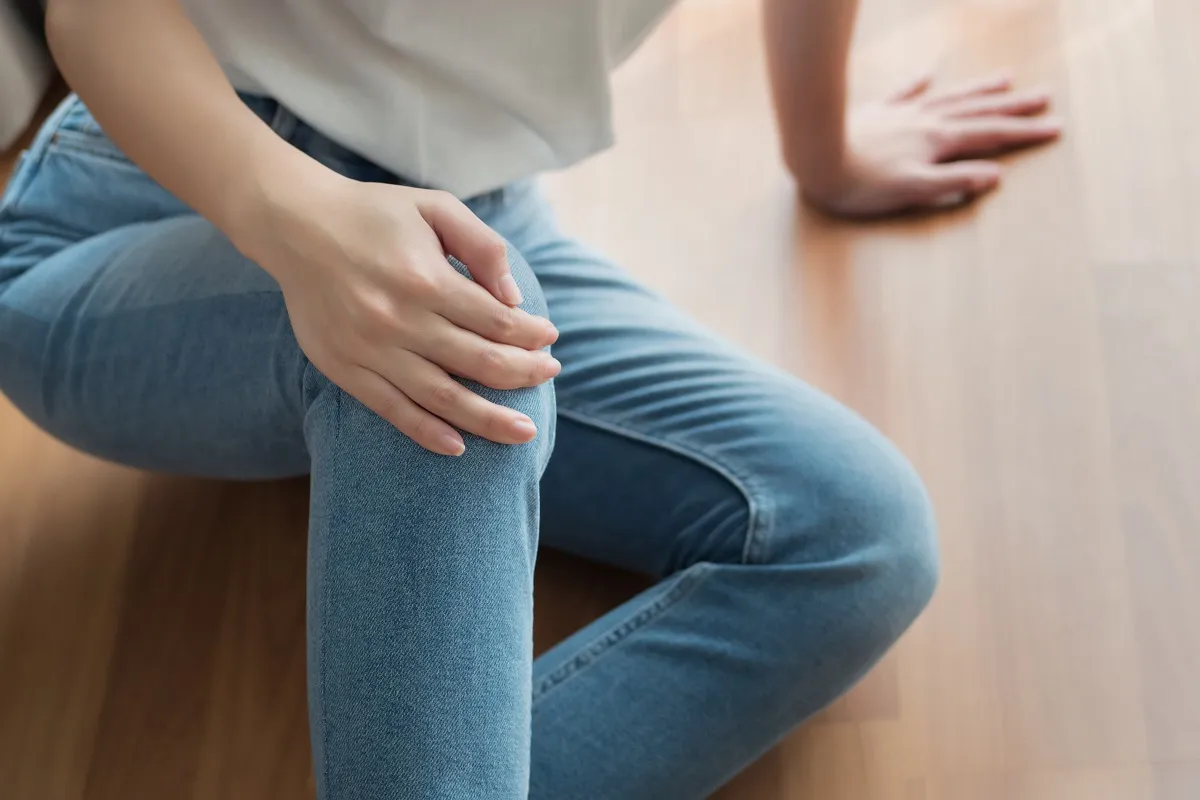

Slip and Fall Injury Attorney in Federal Way
Lehmbecker Law stands as a distinguished slip and fall law firm serving Federal Way, Washington, delivering comprehensive legal representation with a dedication to our clients that’s unmatched by other law firms. Our legal team remains steadfast in pursuing maximum compensation for individuals harmed due to someone else's negligence on unsafe premises.
Dedicated Legal Advocacy for Federal Way Slip & Fall Injury Victims
We know how disruptive a serious fall can be. Our Federal Way personal injury lawyers are committed to helping you seek justice and move forward.
We bring decades of combined experience navigating Washington's complex premises liability laws, ensuring clients receive the financial compensation needed for recovery. We handle every aspect of your claim, from investigating the dangerous condition to negotiating with the insurance company.
Why Choose Lehmbecker Law
When you hire Lehmbecker Law to represent you on your Federal Way slip and fall case, you gain advantages that you won’t get from other, average law firms:
Choosing Lehmbecker Law maximizes your opportunity to receive full compensation, addressing all damages from preventable fall injuries.
Our Case Study: $90,000 Recovered for Slip and Fall Outside of a Restaurant
Our client suffered a broken ankle after slipping on a moss-covered paving stone just outside a restaurant entrance. The hazardous condition had not been properly maintained, creating a serious safety risk. We successfully secured a $90,000 settlement to cover medical expenses, lost wages, and the pain endured during recovery.
What to Do After a Slip and Fall Injury in Federal Way?
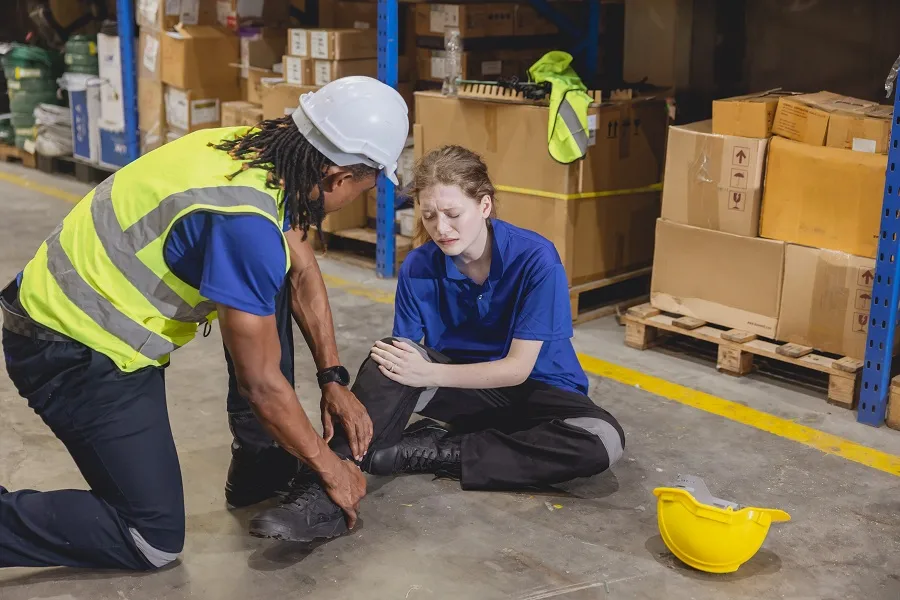
Taking the right steps after a slip and fall accident can make a major difference in your ability to recover compensation.
1. Report the Incident
Notify the property or business owner as soon as possible. Ask for an official accident report, and if they have one, get a copy.
2. Seek Medical Attention
Even if your injuries seem minor, get checked by a healthcare professional. Follow your doctor’s treatment plan and attend all follow-up appointments.
3. Preserve Evidence
- Take photos of the scene, including the hazard that caused your fall.
- Keep the clothing and footwear you were wearing during the accident in case they become relevant later.
4. Track Expenses and Income Loss
Save medical bills, receipts, and any documentation showing lost wages or reduced income.
5. Document Your Recovery
Start a personal injury journal. Record your daily pain levels, physical limitations, and emotional struggles. This can support your non-economic damage claim.
6. Be Careful on Social Media
Avoid posting about the accident or your recovery. Insurance companies often review social media to look for reasons to deny or reduce your claim.
7. Contact a Slip and Fall Lawyer
A professional personal injury attorney can help you understand your rights, gather evidence, and deal with insurance companies on your behalf.
What Types of Damages Can You Get After a Federal Way Slip and Fall?
If you were injured in a slip and fall accident, you may be entitled to recover both economic and non-economic damages. These include:
Economic damages:
- Medical bills (ER visits, hospital stays, surgeries, physical therapy)
- Prescription medication costs
- Long-term care and in-home support services
- Lost wages due to missed work
- Loss of future earning potential if you're permanently unable to work
Non-economic damages:
- Pain and physical suffering
- Emotional distress and trauma
- Reduced quality of life
- Permanent scarring or disfigurement
- Loss of Consortium damages for your spouse
Your recovery should reflect not only your out-of-pocket expenses but also the long-term effects the injury has had on your life.
Watch Out for Common Insurance Tactics
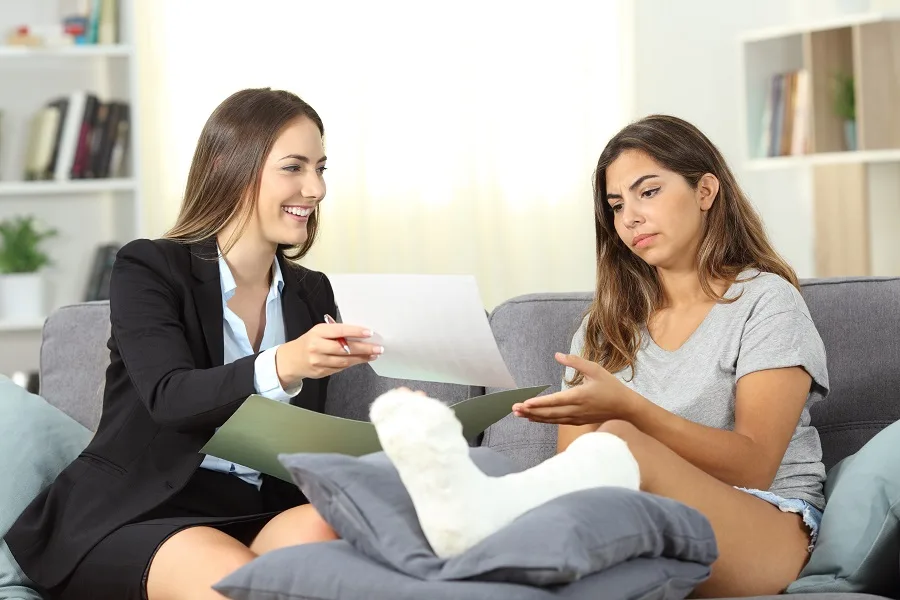
Keep in mind that insurance companies' goal is to pay you as little money as possible. Here is how they can try to reduce or deny your claim:
- Requesting recorded statements: They may ask for a statement, hoping you'll say something they can twist to shift blame onto you.
- Misinterpreting casual remarks: Even saying “I’m okay” can be used to argue that your injuries aren’t serious.
- Digging through your medical history: They might ask for full access to your records to suggest that your injuries were pre-existing.
- Dragging out the process: Delays and lowball settlement offers are used to pressure you into accepting less than you deserve.
- Investigating your social media posts: Insurance investigators often try to gain access to your public social media posts to use comments and photos to hurt your case.
To protect your claim, you need a knowledgeable slip and fall lawyer rather than dealing with the insurance company directly.
Who Is Liable for a Slip and Fall Accident in Federal Way?
Under Washington law, slip and fall victims can hold multiple parties accountable if their negligence contributed to the accident. Knowing who may be responsible is key to pursuing full and fair compensation.
Property Ownership and Management
Whether it’s a retail store, restaurant, or rental property, owners and managers are responsible for keeping their premises safe. That means fixing known hazards and maintaining a safe environment for guests, tenants, and customers.
Municipal Entities
Local and state agencies that oversee public parks, sidewalks, and other community spaces can be held liable if poor upkeep leads to an injury. However, special rules and deadlines apply when filing claims against the government.
Service Providers
If a third-party service — such as a janitorial or repair crew — creates a hazard by doing sloppy work or failing to post warning signs, they may also be held accountable for any accidents that follow.
Commercial Tenants
Businesses that lease space are usually responsible for addressing safety issues within their units, especially when those hazards could put customers at risk.
How to Prove Liability in a Slip and Fall Accident?
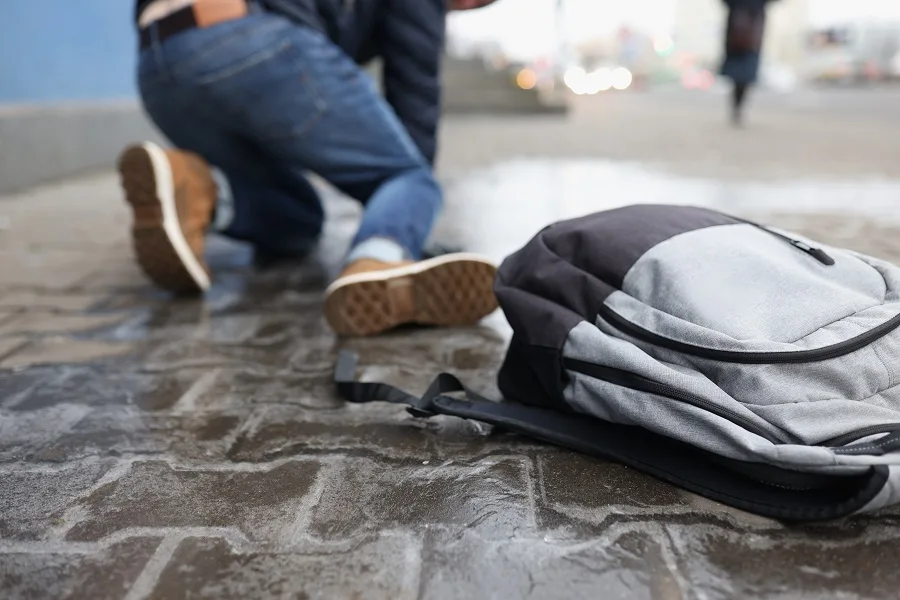
Successfully proving negligence requires demonstrating specific elements showing how the property owner's failure caused your injuries. Essential components include:
1. Legal Obligation
To start, you must show that the property owner had a legal duty to keep the premises safe and that you were lawfully on the property.
2. Duty Violation
Prove the owner failed to fix or warn about a hazard, such as ignoring spills or skipping regular maintenance.
3. Direct Connection
There must be a clear link between the unsafe condition and your injuries. Medical records and expert opinions help show that the fall, and not some other cause, directly led to your harm.
4. Actual or Constructive Notice
You need to show the owner knew or should’ve known about the danger, using evidence like complaints or surveillance footage.
5. Documented Damages
To recover compensation, you must provide documentation of your injuries and losses, such as medical bills, missed wages, and the impact the injury has had on your daily life.
6. Comparative Fault Analysis
Under Washington’s comparative negligence law, if you’re found partially at fault, your compensation can be reduced. That’s why it’s important to build a strong case that clearly shows the property owner’s greater responsibility.
What Is the Statute of Limitations for a Slip and Fall Claim in WA?
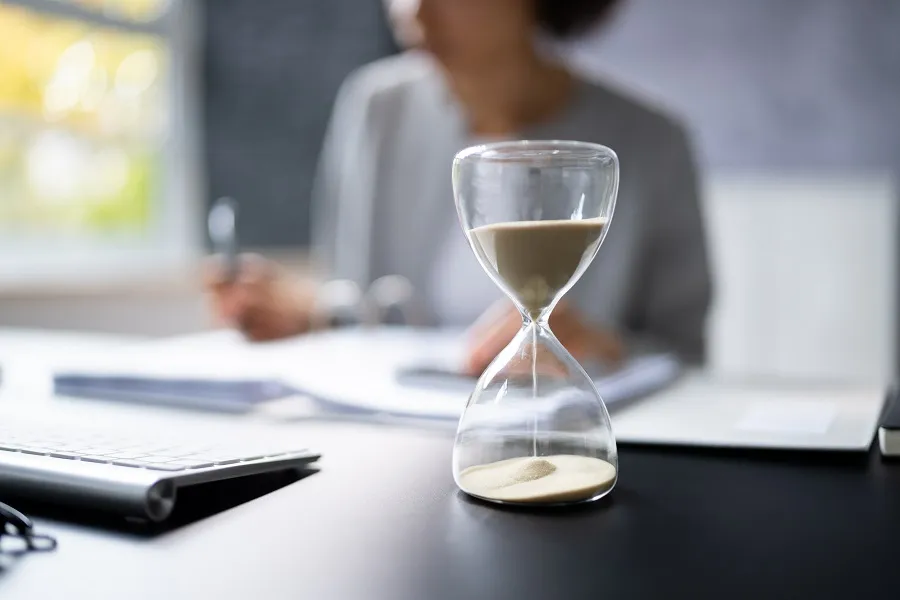
In Washington State, you have three years from the date of your slip and fall accident to file a lawsuit. This deadline is strict — if you miss it, you lose your right to seek compensation, no matter how serious your injuries are.
Common Locations for Slip and Fall Accidents in Federal Way
In Federal Way, slips and falls can happen in many everyday places where property owners fail to keep their premises safe. Knowing where these accidents typically occur can help pinpoint who may be responsible:
- Grocery and retail environments: Slippery spills, uneven flooring, and disorganized aisles make supermarkets and big-box stores common sites for slip and fall injuries.
- Dining establishments: Spilled drinks, greasy floors, low lighting, and overcrowded seating areas often lead to accidents in bars and restaurants.
- Office buildings and job sites: From slick entryways in corporate offices to tripping hazards in industrial warehouses, many workplace injuries stem from poor upkeep and safety lapses.
- Sidewalks and outdoor walkways: Public paths with cracked pavement, icy patches, or poor drainage frequently cause falls, especially in high-traffic pedestrian zones.
- Multi-family housing and private homes: Loose rugs, broken steps, and dark stairwells in residential settings can be dangerous when maintenance is overlooked.
- Parking facilities: Uneven surfaces, oil slicks, and poor lighting in garages and parking lots often go unnoticed until someone gets hurt.
- Healthcare facilities: In hospitals and long-term care centers, cluttered walkways, spills, and inadequate patient assistance can result in serious falls.
Property owners throughout these locations bear responsibility for maintaining safe premises. Their failure creates grounds for pursuing legal action.
Factors Contributing to Fall Accidents
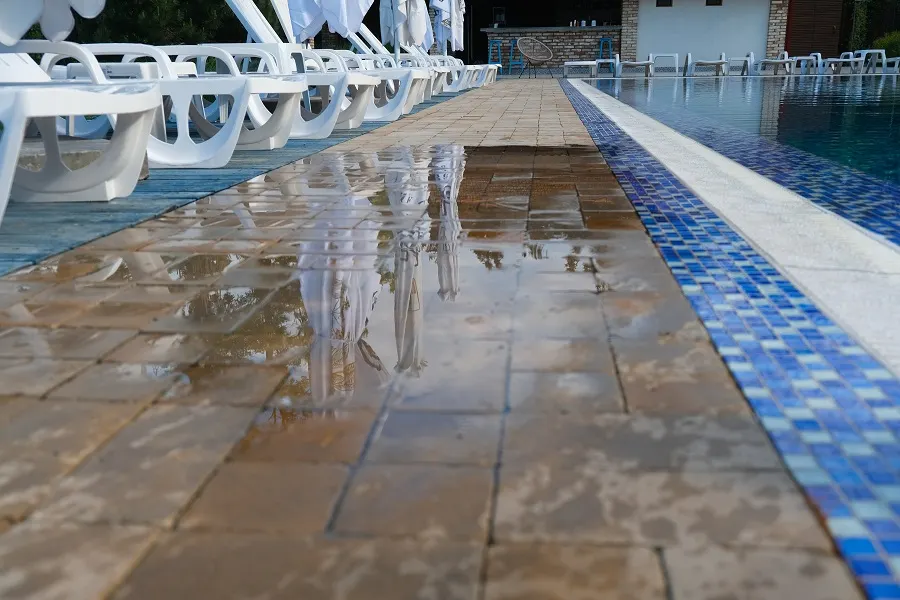
Understanding what causes slip and fall incidents helps establish liability. Common contributing factors include:
- Frayed or unanchored carpets and rugs
- Damaged or unstable floorboards
- Abrupt changes in floor surfaces
- Floors with inconsistent levels
- Damaged steps or railings
- Freshly cleaned or polished floors
- Spilled food or drinks
- Electrical cords or wires lying in pathways
- Scattered waste or clutter
- Leaks from plumbing or appliances
- Damaged walking surfaces, like potholes or cracked pavement
- Damp or slick grassy areas
- Accumulated water, snow, ice, mud, or natural debris outdoors
- Unmanaged snow or ice accumulation
Typical Injuries from Slip and Fall Incidents
Fall accidents result in diverse injuries ranging from minor to catastrophic, each requiring proper documentation through medical records to support compensation claims:
- Bone fractures: Breaks in wrists, arms, ankles, or hips — common and especially serious for older adults.
- Traumatic brain injuries: Head trauma can lead to concussions or permanent brain damage.
- Spinal damage: Back injuries may cause paralysis or long-term disability.
- Lacerations: Deep wounds may scar and require stitches.
- Ligament damage: Strains and tears often need surgery and rehab.
- Shoulder trauma: Dislocations or rotator cuff injuries are common in falls.
- Joint injuries: Direct knee impact causes torn ligaments, damaged cartilage, or fractured bones.
- Hip damage: Often affects seniors and requires surgery and a long recovery.
Our skilled fall lawyers will evaluate your injury severity to determine appropriate compensation amounts covering all current and future needs.

We Can Help You Get Paid and Get Back on Your Feet
If you’ve been injured in a slip and fall in Federal Way, don’t wait to take action. Reach out to Lehmbecker Law today — we’re here to help you build a strong case and fight for the compensation you deserve.

Seasoned legal professionals: Our attorneys bring comprehensive knowledge of premises liability law and nearly 40 years of experience.

Individual-focused service: Each client receives customized legal strategies addressing their unique circumstances and recovery goals.

Demonstrated success: We have a strong track record of winning favorable verdicts and settlements, which reflects our dedicated advocacy.

No upfront costs: We work on contingency, meaning you pay nothing unless we secure compensation for your injuries, eliminating financial barriers to justice.

Easily accessible communication: We believe in open communication. That's why we're always here to listen to your concerns, whether you prefer to text, call, or email us, 24/7.
Injured in a Fall in Federal Way? We’re Here to Help.
Reach out to Lehmbecker Law today for professional guidance and the compensation you deserve.
Testimonials
Areas We Serve
Areas We Serve
Federal Way
STE. F Federal Way, WA 98003





